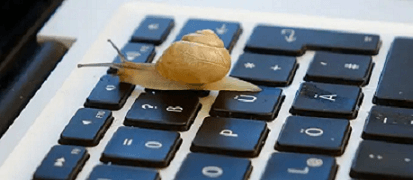What to do if my Windows computer starts slowThere can be many different issues that lead to a Microsoft Windows starting (boot up) slow or lengthy. 
Note: This page contains only the information to cover a slow booting computer. In order to know all about to a slow computer, or to speed up a computer. See: Why is my computer so slow. How To Speed Up Computer. How to speed up Windows 10Tip If you are a user that uses the computer frequently, you might consider avoiding turning it off altogether or setting it to enter hibernation mode when you hit the power button. Why Does My PC Take So Long to Startup?It is possible that your boot drive is not performing at its best, as it can be getting a little full. It could be your hardware may simply be getting a little stale, or you are trying to launch multiple programs simultaneously with Windows. It might be difficult to distinguish between the two until you apply solutions and see what sticks. This page contains all the information as well as a variety of suggestions and tips to assist you in increasing the overall start-up or reboot speed of your desktop or laptop computer.. Disable startup programsWhen a computer starts up, programs are loaded and remain active in memory. As a result, they are one of the key reasons to boot Windows slowly. In this case, you can speed up boot time with the help of turning off the automatic loading of programs that you don't use frequently. ScanDisk and DefragUtilizing Microsoft ScanDisk and Defrag or other similar disk programs will help you make sure your hard drive is storing data in the most effective way possible and is operating error-free. This is a situation in which you need to run both of these utilities at least once every few months, as recommended. Insufficient hard drive spaceIf your Windows computer starts slow, there may be a reason hard disk for it because the computer needs at least 250 MB of free hard disk space in order to operate at peak performance. If you have a free size of your hard disk of less than 250 MB, your system may function slowly and take longer to boot up. Update drivers and WindowsIf your computer drivers are outdated, incorrect, or corrupted, it can generate a variety of problems in your system. Ensure that your computer has the most recent drivers as well as any Windows upgrades that are available. Registry cleanerDespite the fact that mostly, we do not advise using registry cleaners, they can occasionally help Windows operate better overall in some rare situations, particularly at launch time. If you followed all of the advice above with little to no improvement in start-up performance, you might need to wipe your system registry. Format and reinstallIf you have followed all the suggestions, you are still facing the same issue; you may choose to completely clean the computer's hard drive and install Windows again. However, this process is a little bit time taking. Your computer will function as it did when it was new by following this method. Before reinstalling Windows, you need to keep in mind that this process will erase all data from your hard drive, so make sure to back up all of your important files to save your data. You can use cloud services to save your data, or you can use Windows' own backup program, which can be found by searching for "backup" in the start menu. Hardware upgradesThese options have a price connected with them for the user, so we saved them for last. Having said that, they are among the best ways in order to improve performance and decrease boot times. With the help of upgrading from a hard drive to a solid-state drive, you will notice a significant improvement in the performance of your system if your computer is slow while starting up, opening files, or loading games. SSDs do not contain any moving elements, unlike hard drives, which require the disk to spin in order to read data from it. Instead, they store data on linked transistors that work at lightning speed. SSDs function instantly, allowing data to be read much more quickly and speeding up your PC, whereas Hard drives require some time to spin up to full speed when they first turn on. There are many online instructions for buying an SSD; therefore, it should be simple to purchase as well as install in your system if you have a desktop computer. On the other hand, switching out your disk drive on a laptop will probably be challenging or might impossible. Whenever you are going to upgrade the SSD in your laptop, then keep in mind many new models of laptops do come equipped with SSDs. Adding random access memoryIn the computer, if you increase the additional memory (RAM), it helps to enhance the overall speed of the system. And in some situations, the boot time can also be decreased with the help of adding more memory to the computer. It could be time to upgrade if your PC has less than two gigabytes of RAM. Adding a solid-state driveThe best approach to improve a computer's performance overall is using an SSD. Windows boot times are significantly slashed when you switch from a regular hard disk to a solid-state drive on desktop and laptop computers as well. Tweak your BIOSYou can enable some BIOS settings, such as Fast Boot, to speed up startup time. Startup logos, which can somewhat slow down startup performance, can also be disabled.
Next TopicDo I need a Windows registry cleaner
|
 For Videos Join Our Youtube Channel: Join Now
For Videos Join Our Youtube Channel: Join Now
Feedback
- Send your Feedback to [email protected]
Help Others, Please Share










